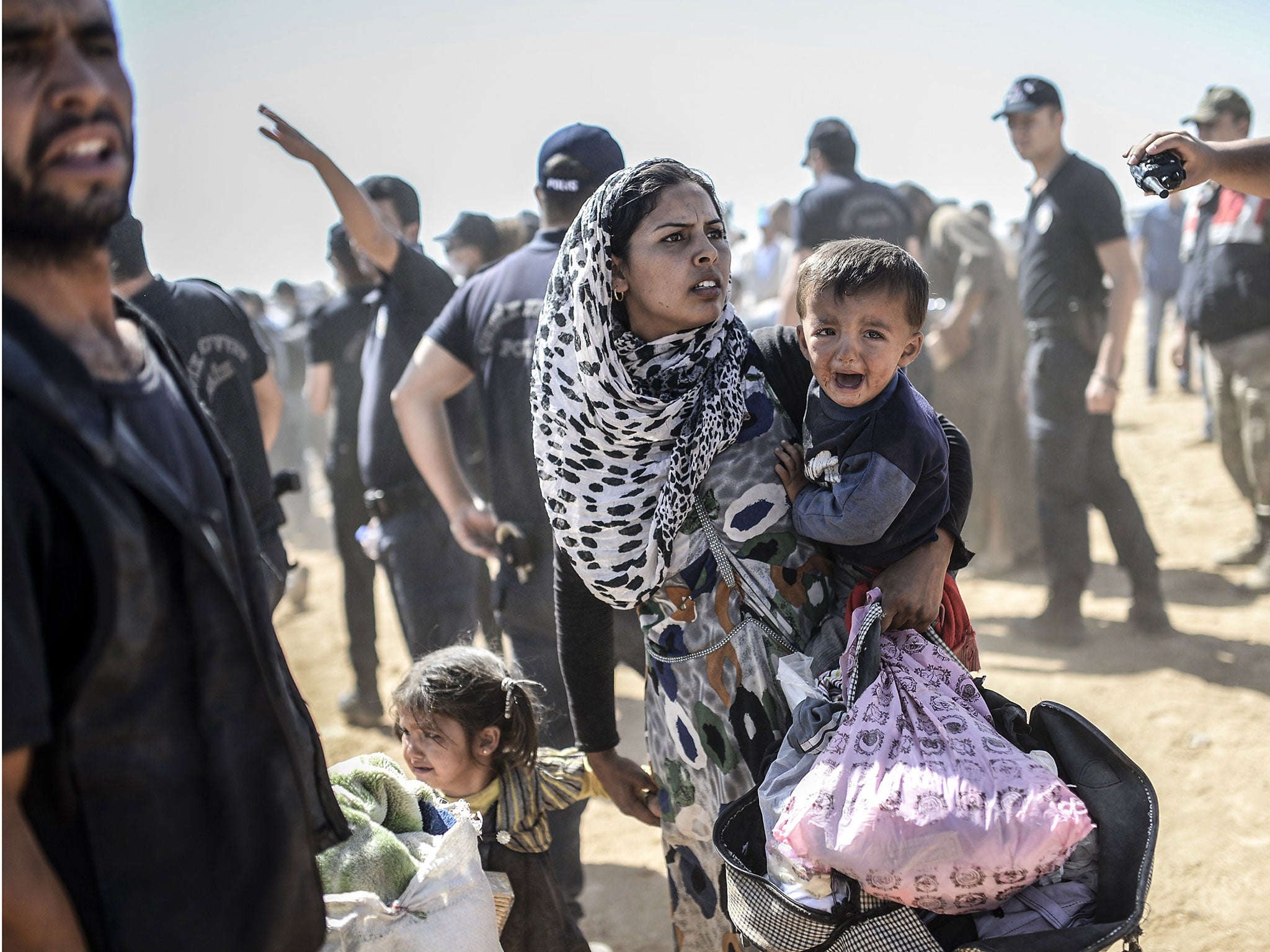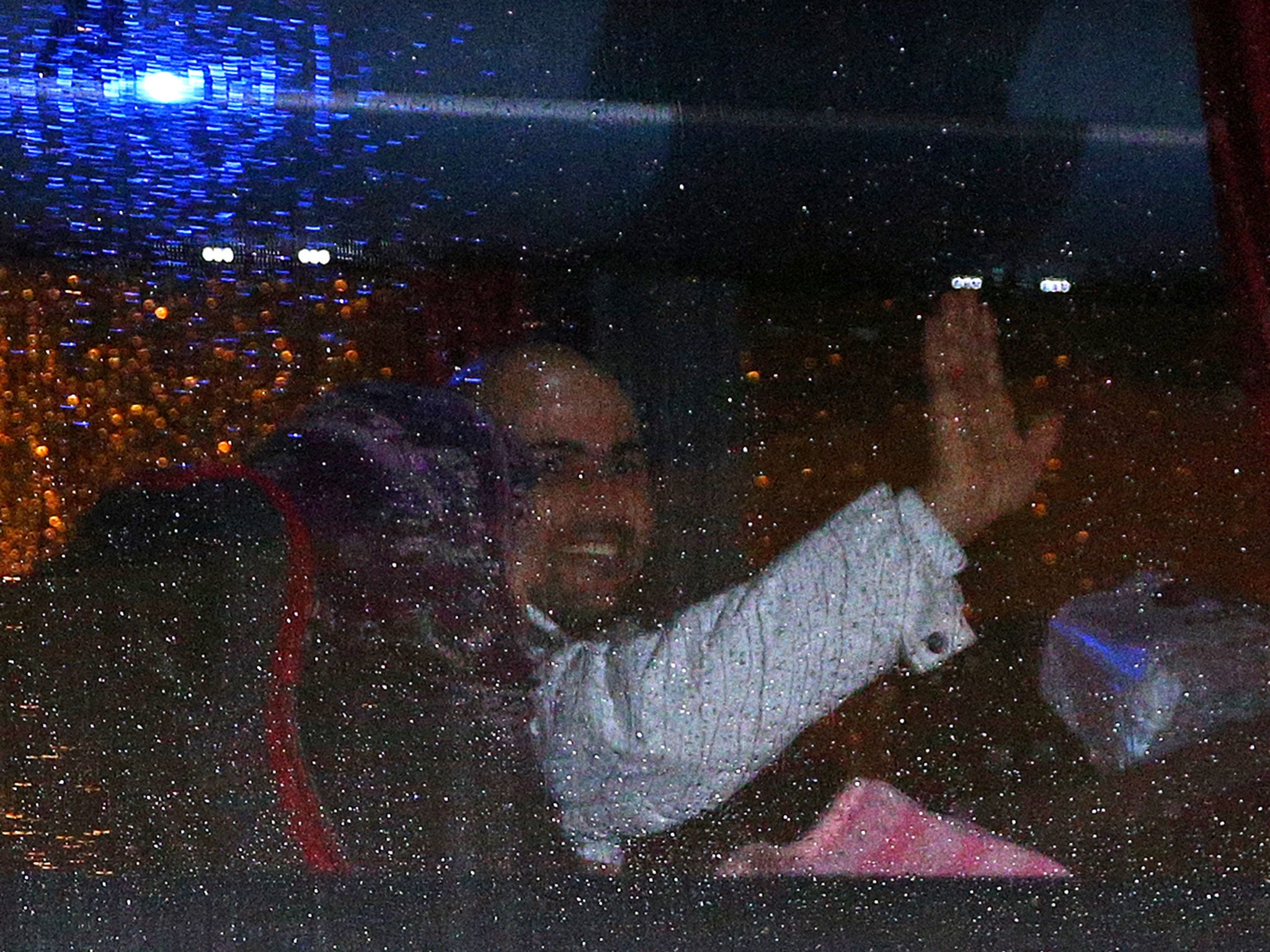Syria air strikes: Government resists calls to house more refugees after starting bombing campaign
Humanitarian organisations said the current quota was not enough when the UK is now adding to the destruction in Syria

Your support helps us to tell the story
From reproductive rights to climate change to Big Tech, The Independent is on the ground when the story is developing. Whether it's investigating the financials of Elon Musk's pro-Trump PAC or producing our latest documentary, 'The A Word', which shines a light on the American women fighting for reproductive rights, we know how important it is to parse out the facts from the messaging.
At such a critical moment in US history, we need reporters on the ground. Your donation allows us to keep sending journalists to speak to both sides of the story.
The Independent is trusted by Americans across the entire political spectrum. And unlike many other quality news outlets, we choose not to lock Americans out of our reporting and analysis with paywalls. We believe quality journalism should be available to everyone, paid for by those who can afford it.
Your support makes all the difference.The Government is resisting calls to house more refugees in the UK after MPs voted to join bombing in Syria, potentially driving even more civilians from their homes.
The International Rescue Committee UK (IRC), which works with asylum seekers reaching Europe’s shores, was among the groups calling for Britain to accept more responsibility for the humanitarian crisis it is now actively involved in.
Melanie Ward, associate director at the IRC, told The Independent’s sister website i100.co.uk that an upsurge in air strikes in Syria “inevitably risks” an increase in people fleeing the conflict.
“It cannot be argued that accepting 4,000 Syrian refugees per year - or around six per parliamentary constituency - is our fair share of the millions who have fled Syria - this is more the case now than ever before,” she said.
“The Government should urgently revise the numbers upwards, including by welcoming a significant number of the refugees whose desperation has seen them reach Europe's shores already.”
But Richard Harrington, the Conservative minister for Syrian refugees, said the Government’s position has not changed since Wednesday’s vote for intervention.
“The UK has been at the forefront of the international response to the humanitarian crisis in Syria and we are providing more than £1.1 billion in humanitarian aid,” he told The Independent.
"We have also taken in almost 5,000 refugees and asylum seekers since 2011 and we are expanding the Syrian Vulnerable Persons Resettlement (VPR) scheme to resettle a further 20,000 people by the end of this Parliament.
"We are working closely with UNHCR to identify and resettle those in the region who are the most vulnerable. This also deters people from attempting these perilous journeys which have already led to so many tragic deaths.”

The House of Commons debated accepting more refugees in September after the death of Aylan Kurdi, a three-year-old Syrian boy who drowned alongside his brother and mother attempting to reach Greece.
Calls had mounted through the summer for asylum seekers to be given safe passage to Europe and homes on the continent following a series of disasters in the Mediterranean and Aegean.
A petition on the Government website calling for the UK to offer “proportional asylum” compared to Germany and other allies reached almost 445,000 signatures, while this newspapers Refugees Welcome campaign drew support from a further 387,000 people.
But political and public will to address the continuing crisis has waned following the Paris attacks, when it emerged that at least two of the Isis militants who massacred 130 people may have used the refugee route through Greece to enter Europe.
The UN High Commissioner for Refugees, António Guterres, was among those appealing to governments not to blame asylum seekers for the atrocity as several nations moved to backtrack on housing the thousands of people arriving in Europe.
He said that the fake Syrian passport in the name of Ahmad Al-Mohammad was “left to be seen” by a suicide bomber at the Stade de France as part of an Isis strategy to “put the refugees in the spotlight”.
“It is not the refugee outflows that cause terrorism, it is terrorism, tyranny and war that create refugees,” Mr Guterres added.
“It is clear that the Daesh (Isis) strategy is not only to set Europeans against refugees, but within Europe, to set citizen against citizen within communities, community against community within countries, and country against country in the Union.”
Join our commenting forum
Join thought-provoking conversations, follow other Independent readers and see their replies
Comments